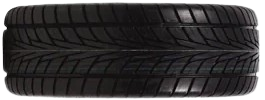Winter Tires vs. All Season Tires

Winter Tires

- Winter tires stay flexible in temperatures below 7°C to provide the necessary traction for cold-weather driving conditions.
- They reduce braking distance on cold, wet, ice and snow-covered roads in comparison to all-season tires.
- The traction provided by winter tires enhances the performance of anti-lock braking systems (ABS), vehicle stability assist (VSA), traction control and all-wheel drive in winter conditions.
- Industry data shows that in cold weather, a vehicle equipped with winter tires has approximately a 40% less chance of being involved in a collision versus one equipped with all-season tires.
All-Season Tires

- All-season tires are designed to provide traction and durability in a wide variety of seasonal road conditions. However, they cannot provide the same levels of traction in winter conditions as a proper winter tire.
- They are best suited for use in temperatures above 7°C.

